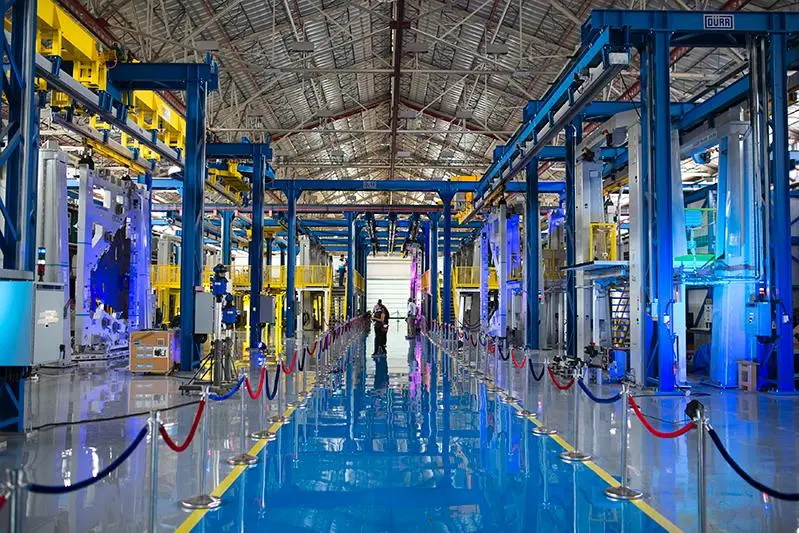PHOTO
UAE's Etihad confirmed on Wednesday that its subsidiary has partnered with state-owned Israeli Aerospace Industries (IAI) to set up a passenger-to-freighter conversion facility for Boeing aircraft in Abu Dhabi.
The partnership between Etihad Engineering, the largest commercial aircraft maintenance, repair and overhaul services provider in the region, and IAI will facilitate conversion works on Boeing 777-300ER jets. The two conversion lines at the site are expected to accommodate "multiple" aircraft conversions per year, Etihad said in a statement.
The announcement comes as demand for air cargo services continues to grow and outperform the passenger segment of the aviation market. Several airlines around the world have converted their passenger aircraft to cargo-only flights, following a surge in demand since the onset of the pandemic last year.
As of June 2021, global air cargo markets posted a 9.9 percent improvement on pre-COVID-19 performance (June 2019). This pushed the first half-year air cargo growth to 8 percent, its strongest first half performance since 2017, according to the International Air Transport Association (IATA).
“Air cargo is doing brisk business as the global economy continues its recovery from the COVID-19 crisis,” said Willie Walsh, IATA’s director general.
Etihad, whose core operating loss hit $1.7 billion last year, said the growing cargo business is indeed offsetting the impact caused by the massive decline in passenger traffic.
“While the COVID-19 pandemic has taken its toll on the aviation sector, cargo operations are offsetting operators’ losses, as it continues to play a critical role in facilitating international trade,” Etihad said.
“As a result, industry forecasts show an increase in demand for wide-body freighter aircraft with long-haul capacity.”
According to Yossi Melamed, executive vice president and general manager of Israel Aerospace Industries Aviation Group, the partnership with Etihad also “adds a significant tier” to the ties between the Gulf states and Israel.
“I have no doubt following this agreement, additional agreements with companies in the region will arrive, and they will economically benefit the sides involved,” he said.
(Reporting by Cleofe Maceda; editing by Daniel Luiz)
Disclaimer: This article is provided for informational purposes only. The content does not provide tax, legal or investment advice or opinion regarding the suitability, value or profitability of any particular security, portfolio or investment strategy. Read our full disclaimer policy here.
© ZAWYA 2021





















